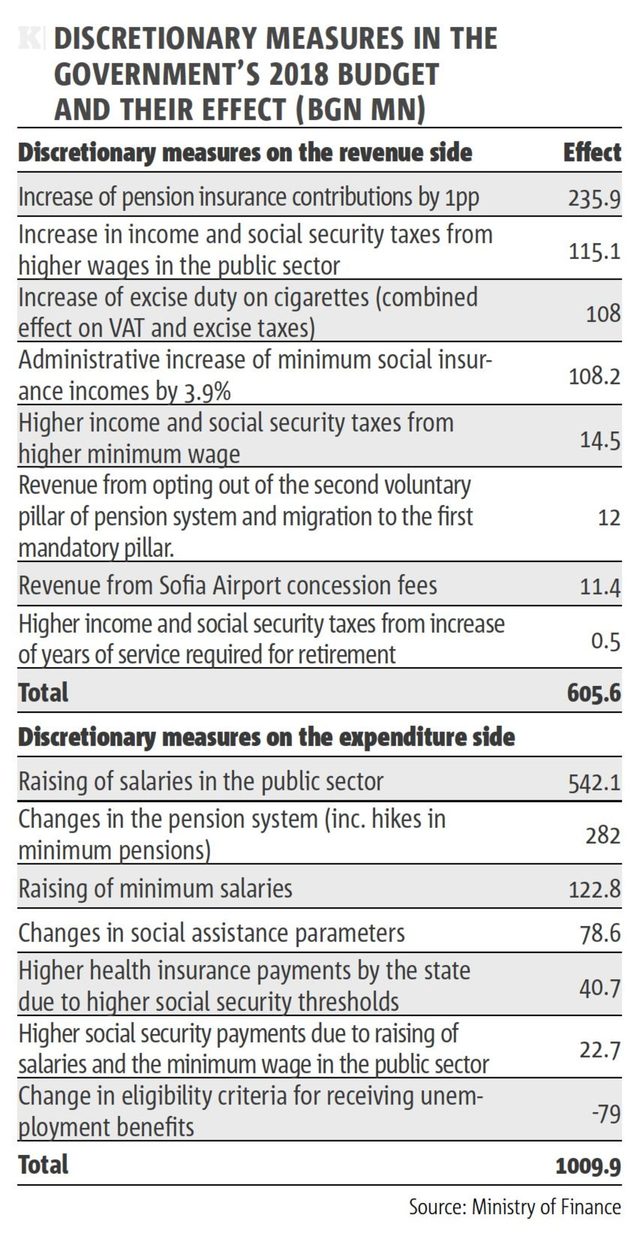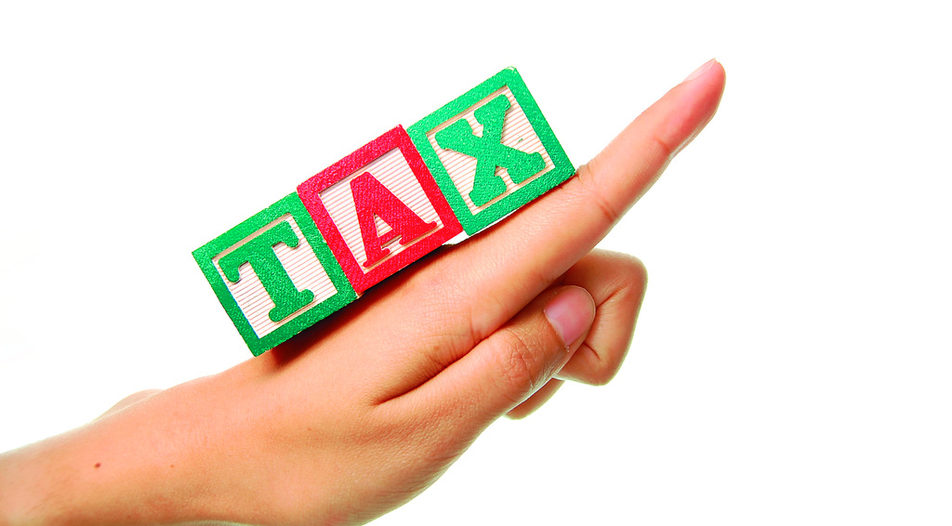The easiest way to understand fiscal policy, in any country at any time, is to look at so-called discretionary measures in the annual budget. These reflect governments' policy actions and their estimated effect on the budget and have nothing to do with economic cycles or other external processes influencing revenues and expenditures.
Bulgaria's three-year fiscal framework was made public in October as part of the budget approval process. The document produced by the Ministry of Finance contains two detailed tables illustrating the government's discretionary measures on the revenue and expenditure sides for the next three years
Revenue Side
The discretionary measures on the revenue side show an increase of budget revenue by a total of one billion levs cumulatively over the period 2018-2020. Put bluntly, this means that on top of their current tax burden, taxpayers will have to pay an additional billion (some 500 mn euro) over current rates to finance the budget during the next three years. The biggest share of the tax increase, roughly 600 mn levs, comes due in 2018, followed by 200 mn in 2019, and an additional 200 mn in 2020.
The biggest item on the revenue side is an increase in mandatory pension insurance contributions to the pay-as-you-go pillar by one percentage point effective start-2018. This is a second leg of a total two percentage points increase of pension contributions, decided upon in 2015 as part of a pension reform package. Next year's pension contributions hike alone will bring an additional 235.9 mn levs into the budget.
Another discretionary measure with a relatively large effect upon revenue is an increase of excise tax on cigarettes as part of Bulgaria's commitment to reach the new EU-wide minimum excise level by 2018. This is expected to yield 108 mn more in tax revenues (excises and VAT) during the coming year.
Separately, a 3.9% government-imposed increase of minimum social insurance thresholds (used to calculate social security taxes), will bring another 118 mn levs into the 2018 budget. This increase has been mandated by the labor minister after the failure of tripartite negotiations among trade unions, employers' associations and government and contrasts with the hand-off approach of previous ministers. Finally, the planned hike of the minimum wage as well as salary increases in the public sector will deliver an additional 120 mn levs revenue from income taxes during the next year.
Expenditure Side
On the expenditure side, discretionary measures for next year exceed one billion levs mainly due to increases in salaries in the public sector. Higher wages in education, police, prisons, social policy, and other agencies will create additional expenditures of 542.1 mn levs, more than half of next year's increases in discretionary expenditures.
The planned rise in the legally binding minimum wage from 460 levs per month currently to 510 levs as of the outset of 2018 will also affect public sectors payrolls, raising them by an estimated 122.8 mn levs in 2018. Another substantial item on the expenditure side are pensions The minimum state pension will rise to 200 levs (102 euro) per month as of the outset of 2018. In addition, changes will be made to the formula for calculation of pension benefits. In all, pension-related expenditure will total 282 mn levs in next year's budget.
Tweaks in the social safety net will also affect budget expenditures. The so-called guaranteed minimum income, used as a benchmark in some social assistance programs, will rise from 65 levs (33 euro) per month currently to 75 levs (38 euro) next year. With the addition of other, smaller measures, the total effect of discretion on budget expenditure in 2018 will amount to an estimated one billion levs.
To sum up, the government will pour around one billion levs into the economy next year, mostly via higher salaries and pensions. At the same time, it will call back some 130 mn levs through taxes on salaries in the public sector and take back a further 450 mn levs in higher levies on other taxpayers. It is hardly justifiable to increase the tax burden against the backdrop of a budget surplus in the year to date, especially when no reforms in the bloated public sector can be seen on the horizon. While the rise in excises on tobacco products is the result of EU rules, higher taxes on labor income of those in employment are particularly difficult to sell to the populace.

Desislava Nikolova is a chief economist at the Institute for Market Economics
The easiest way to understand fiscal policy, in any country at any time, is to look at so-called discretionary measures in the annual budget. These reflect governments' policy actions and their estimated effect on the budget and have nothing to do with economic cycles or other external processes influencing revenues and expenditures.
Bulgaria's three-year fiscal framework was made public in October as part of the budget approval process. The document produced by the Ministry of Finance contains two detailed tables illustrating the government's discretionary measures on the revenue and expenditure sides for the next three years












